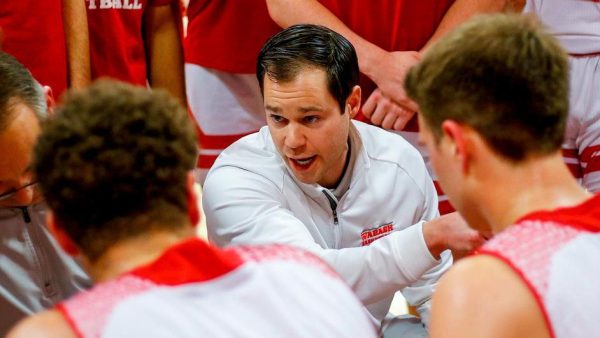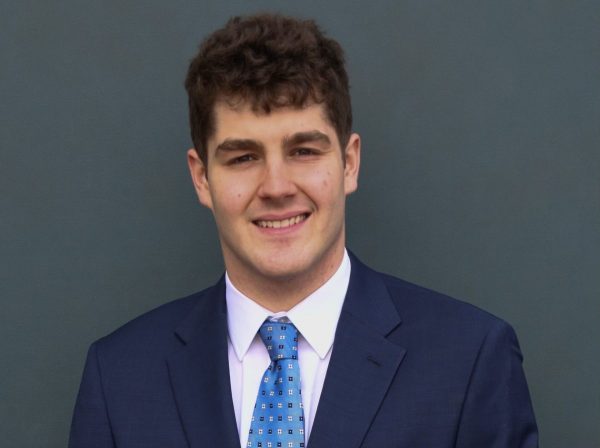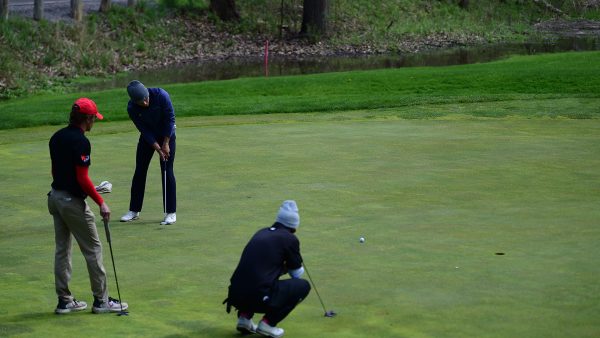Women’s rugby looks to expand campus presence
Rugby was created in late 19th-century England and soon after, American universities began competing against one another. However, it was not until the late 1960s, when rugby started to gain popularity, reports USA Rugby.
Today, the upswing in rugby’s popularity can be seen on Allegheny’s campus, according to Madison Heeter, ’20, who had little knowledge of the sport before coming to college.
“I never played rugby before college,” Heeter said. “I had always wanted to play football, so I thought it would be kind of cool.”
Her teammate Bailey Pifer, ’19, was in a similar situation.
“I kind of knew about the rugby team but wasn’t sure I wanted to play,” Pifer said.
After both women signed up for rugby at the involvement fair during their first year at Allegheny, Heeter and Pifer said they attended “rookie practice.”
Heeter said it was “love at first practice.”
Rookie practices are held in order to teach new players the basics of rugby, said Tessa Lutterman, ’19.
The practices consist of drills where the new players are taught how to play the sport.
“Rugby is pretty complicated,” Lutterman said.
Allegheny Women’s Rugby is expected to have around 35 players this year, a number Pifer said is not surprising.
“We are pretty consistent with numbers, more so in the fall season because that is our league play season,” Pifer said.
The fall season for the women is similar to that of a varsity sport because the team competes in a league. During the spring season, the players travel across the region to compete in a number of different rugby tournaments.
Heeter said travel in both both the fall and spring seasons can be far.
“The furthest we travel in set match season is Fairmont (State) which is about four hours away,” Heeter said. “Usually for tournaments it can be pretty far,”
The women’s team competed in a national tournament two seasons ago at SUNY-Cortland, roughly four and a half hours away from Allegheny.
For many players on the team, playing rugby means much more than winning and losing. Heeter and Pifer said the sport has taught them lessons both on and of the field.
“I love the team dynamic,” Heeter said. We have a really positive attitude that makes people want to keep running back.”
Off the field, Heeter said the team also gets together often.
“We do a lot of team bonding,” Heeter said.
Pifer said rugby has done “amazing” things for her.
“It’s given me a lot of confidence … and a lot of personal growth,” Pifer said.
Both women said the team cherishes memorable moments of being on the team.
Heeter said one of her favorite moments is, “whenever someone scores their first try … we sing a little tune on the field, and it’s just a really exciting moment for everyone.”
For Lutterman, one of her favorite memories comes from watching former teammate Tachelle Johnson, ’18.
“She picked this girl up of the ground and set her back down because she was so much smaller than she was,” Lutterman said. “I just remember seeing that, and that’s by far my favorite memory.”
Pifer reflected on the time the team traveled to play in a national tournament.
“I think one of my favorite moments was our trip to nationals because we were in five hotel rooms with 30 girls,” Pifer said. “We were singing songs. We had story time before bed time. It was just a weekend with each other not at school. It was just something so unique.”
Heeter is hopeful for the future of Allegheny rugby.
“The direction I hope to see it go in the future is continuing to grow the team and give people the confidence that they are lacking because this sport has definitely given me confidence that I never had had in myself,” Heeter said. “I just want to keep putting positivity in the atmosphere and have people understand that rugby as a sport is fun. Yeah, it can be scary, but it’s so much fun.”
Pifer hopes the club’s presence will grow on campus in the future as well.
“(We) want more of a presence on campus and to get other schools involved in rugby because it has affected all of our lives so much that we want to see the changes in other people’s lives as well,” Pifer said.







